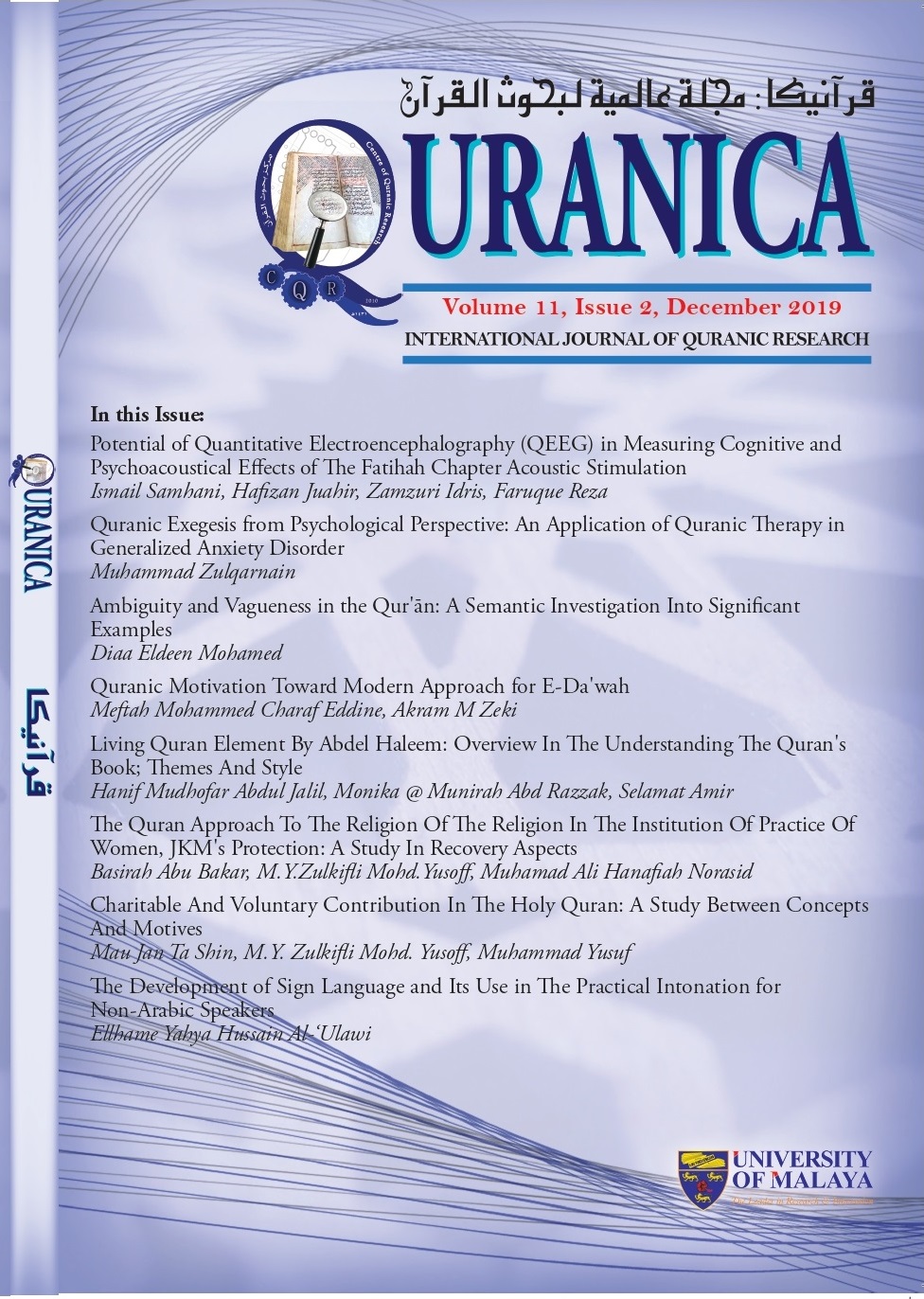The Quran Approach To The Religion Of The Religion In The Institution Of Practice Of Women, JKM's Protection: A Study In Recovery Aspects
Main Article Content
Abstract
This study focuses on the Qur'anic approach to preaching for adolescents from the aspect of rehabilitation at the Department of Social Welfare of Women's Welfare Protection (JKM) in Selangor and Kuala Lumpur. It is a series of juvenile crime in Malaysia seen rising especially in Kuala Lumpur. Based on statistics from the Royal Malaysia Police (PDRM), the number of criminal cases involving juvenile offenders increased by 11% over a year. Furthermore, most occupants of shelters are Muslims. This is because adolescents at this age are easily influenced to try and do something. The religious modules conducted at women's shelter homes have yet to attain certain, traditional, conventional or religious approaches specially designed to address adolescent behavior problems. The design of this study is a qualitative study using data collection methods through semi structured interviews, observation and document analysis. The first approach, motivation with praise and words, shows the most important aspect of al-Ghazali's approach of building relationships with an individual. The second approach is the order directed to show the acceptance of the instructions from the individual after identifying the problem. The third approach is the justification of the command which states the requirement in executing the ordered order. Therefore, the author sees the Qur'anic preaching approaches in the aspect of rehabilitation of the two Habitat Prayership Homestay shelters, Kampung Pandan (ABKL) and the Taman Seri Puteri, Cheras (TSP) shelter house managed by the Department of Social Welfare Malaysia. In conclusion, the findings show ABKL and TSP using a modular approach and a quran recovery approach. There are three forms of Quranic preaching approach in the aspect of rehabilitation in ABKL and TSP namely; (1) protection, (2) education, and (3) monitor.
Downloads
Article Details
Disclaimer
QURANICA makes every effort to ensure the accuracy of all its contents. However, opinions, discussions, views and recommendations are expressed in this journal do not necessarily reflect the official policy of QURANICA or views of its editors or publishers. Therefore, QURANICA and its publishers will not be liable for any controversy may be arisen. The journal reserves the right, at its sole discretion, to change its terms and conditions of publications.
Copyright
It is a condition of publication that manuscript submitted to the journal have not been published, accepted for publication, nor simultaneously submitted for publication elsewhere. By submitting a manuscript, the author(s) agrees that copyright for the article is transferred to the publisher, if and when the manuscript is accepted for publication.
